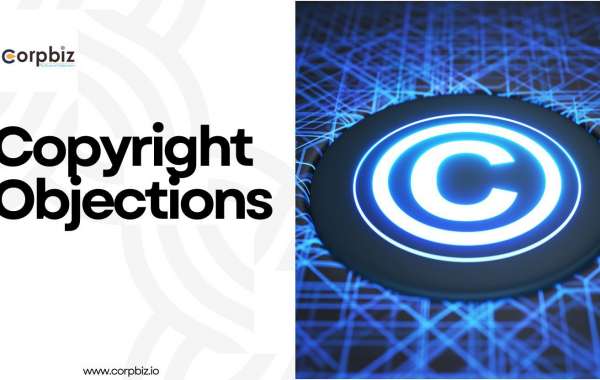Copyright laws are crucial to protecting intellectual property and fostering innovation. However, dealing with a copyright objection can be a challenging experience for creators and businesses. In India, navigating the legal landscape of copyright objections is vital to ensure the smooth operation of creative ventures. This blog will explore the top reasons for copyright objections in India and share actionable tips to help us avoid them. We will also discuss the role of copyright licenses, the importance of copyright disclaimers, and how they can safeguard our work.
What Is a Copyright Objection?
A copyright objection is a formal challenge raised when a claim of copyright ownership is disputed or questioned. In India, copyright objections can arise during the registration process or when content is published without the proper authorization. Resolving such objections promptly is critical to protecting our creative rights and avoiding legal hassles.
Top Reasons for Copyright Objections
Plagiarism and Lack of Originality
One of the most common reasons for copyright objections is the use of plagiarized content. If the work submitted for copyright registration is found to lack originality or closely resembles an existing creation, objections are inevitable.
How to Avoid This:
- Ensure that our content is 100% original.
- Use plagiarism detection tools to verify uniqueness before publishing or submitting for copyright registration.
Incomplete Documentation
When applying for a Copyright License, incomplete or incorrect documentation can lead to objections. Missing details like authorship, ownership rights, or prior agreements can raise red flags.
How to Avoid This:
- Double-check all forms and documents before submission.
- Clearly outline ownership rights, especially when co-creators are involved.
Conflict with Existing Copyrights
Conflicts may arise when our work inadvertently overlaps with an existing copyrighted work. This is particularly common in cases where titles, themes, or designs are similar to registered works.
How to Avoid This:
- Conduct thorough research to ensure that our work is unique.
- Check copyright databases for similar works before submission.
Improper Use of Disclaimers
A copyright disclaimer is essential to clarify how our content can be used and by whom. Failing to include a proper disclaimer can lead to misunderstandings and objections.
How to Avoid This:
- Use a well-drafted disclaimer for copyright in all creative works.
- Clearly specify usage rights and restrictions in the disclaimer.
Violation of Licensing Agreements
Disregarding terms outlined in a copyright licensing agreement can trigger objections from the copyright holder. For instance, using licensed material beyond agreed-upon limits is a common violation.
How to Avoid This:
- Always adhere to the terms of our copyright license.
- Renew licensing agreements before their expiration to avoid disputes.
Misrepresentation of Ownership
Claiming ownership of a work we do not fully own can lead to copyright objections in India. Misrepresentation can occur unintentionally when collaborations or joint creations are involved.
How to Avoid This:
- Clearly define ownership rights in any collaborative project.
- Document all agreements to avoid ownership disputes.
Infringement of Public Domain or Open-Source Works
Public domain or open-source content must be used with caution. Failing to follow the guidelines for such works can result in objections.
How to Avoid This:
- Verify the terms of use for public domain or open-source materials.
- Give proper attribution where required.
How to Handle Copyright Objections
While the goal is to avoid Copyright Objections, knowing how to handle them effectively is equally important.
Understand the Objection
Analyze the specific reason for the objection and gather all relevant documentation.
Respond Promptly
Timely responses to objections show that we are serious about resolving the matter. Delay can escalate the issue.
Seek Legal Advice
Engage a legal expert to help us navigate complex copyright issues and draft a formal response.
Amend the Application
If required, make necessary corrections to our copyright application and resubmit it.
Negotiate or Settle Disputes
When conflicts arise, try to resolve them amicably through negotiations or settlements.
Tips to Safeguard Our Creative Works
- Always register our work under copyright laws to establish ownership.
- Include a detailed copyright disclaimer in all published works.
- Use watermarking or digital signatures for online content to prevent misuse.
- Regularly monitor the internet for unauthorized use of our work.
- Educate ourselves about copyright licensing and adhere to its terms.
Why Copyright Licensing Matters
Obtaining a copyright license is essential for protecting intellectual property and granting legal permissions for its use. Whether we create music, art, or software, licensing helps us retain control over how our work is utilized. Proper licensing also reduces the risk of objections by ensuring that third parties adhere to defined terms.
Drafting an Effective Copyright Disclaimer
A well-drafted Copyright Disclaimer helps prevent unauthorized use and clarifies usage terms. Here’s what to include:
- Ownership Details: Specify the creator or copyright holder.
- Usage Terms: Define permissible and prohibited uses.
- Attribution Requirements: State if credit is required for usage.
For example:
"This content is protected under copyright laws. Unauthorized use, reproduction, or distribution is prohibited without prior written permission."
FAQs on Copyright Objections
- What is a copyright objection, and how can we avoid it?
A copyright objection arises when the originality or ownership of a work is disputed. To avoid objections, ensure that our work is original, adhere to licensing terms, and provide complete documentation during copyright registration.
- What is the role of a copyright disclaimer in India?
A copyright disclaimer clarifies how a work can be used, protecting creators from unauthorized usage. It helps establish boundaries and can deter potential infringers.
- Why is copyright licensing important for businesses?
Copyright licensing allows businesses to grant legal permissions for the use of their intellectual property while maintaining control. It ensures that licensing terms are adhered to, reducing the likelihood of disputes or objections.




